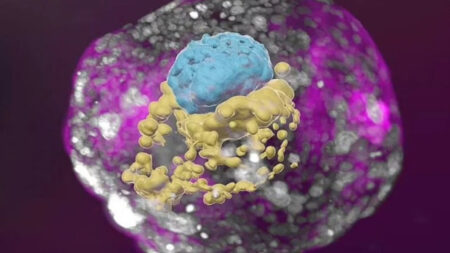Certain bonds remain forever, and similarly, certain chemical bonds also remain forever. These are called ‘Forever chemicals’ or PFAS (per and poly-fluoroalkyl substances).
Unlike friendship or relationship bonds, these chemical bonds can get dangerous or even cancerous.
They can reduce our responses to vaccines, deter our growth, increase our cholesterol levels, and put us at risk of heart diseases that eventually result in a shorter life span.
Forever chemicals are a group of 4700 types of compounds created by joining carbon and fluorine.
These chemical bonds are called ‘Forever chemicals’ because these chemical bonds hold the mixtures together, don’t break down quickly, and last a very long time. This means that they can continue to build up in your blood as you drink them.
Where are they found?
Forever chemicals are found almost everywhere, and we humans are responsible for the placement of these chemical bonds. These have been used in several products since the 1940s.
They make products heat resistant, moisture resistant, and water resistant. The most commonly used PFAS are PFOA (Perfluorooctanoic acid) and PFOS (Perfluorooctane Sulfonate).
Any product which promises to be water-resistant or moisture resistant is bound to have PFAS. These variants can be found in food chains, water, kitchens, and even carpets at home.
Additionally, microwave popcorn bags, pizza boxes, non-stick pots and pans, food packaging, water-resistant makeup, shampoo, dental floss, paint, and even raincoats have Forever chemicals.
How can it affect your body?
Studies have shown that Forever chemicals can interfere with our hormones, increase our cholesterol levels, create problems with our immune system, and increase the risk of certain cancers.
These chemicals also affect one’s reproductive organs and can also lead to congenital disabilities. It can affect a child’s growth, learning, and behaviour.
In the USA, residents of Horsham Township, near Philadelphia, in the year 2014, found out that their water had been contaminated with possibly very toxic chemicals that explained an array of health problems in their area, which included learning delays in children and even cancer.
Some of the residents alleged in a lawsuit that their water was among the contaminated supplies.
PFAS were later detected in the drinking water of more than 1,400 communities in 49 states in America.
As per the research conducted by the PFAS Project at Northeastern University in Boston and the Environmental Working Group (EWG), 110 million people may have tap water contaminated with chemicals.
A study in 2016 also found 15 PFAS in more than one location of the river Ganga where they were found downstream. According to the study, their levels elevated when the river was at the confluence with river Yamuna. Almost all fish samples from river Ganga have chemicals.
The threat and concern are significant because forever chemicals have also been found in breast milk. The larger story is still yet to be told to the world.
These chemicals are deadly and are already persisting in our food chains. Scientists say that 98% of us have chemicals forever in our bodies. It is an unnatural disaster, and humans are responsible for this killer chemical.
Individuals can, however, control their exposures to these harmful chemicals through simple measures. One can contact their local water supplier and get their water tested for PFAS.
Checking labels and making better changes is crucial, and one can also avoid products with ‘FLURO’ OR ‘PTFE’ in their names.
When buying or wearing makeup, one must prevent water-resistant makeup and replace non-stick pans with steel or ironware. Thus, avoiding any water-resistant product for our home use.
New-age products may be convenient and in style, but it’s the traditional old school products that are tried and tested and have forever proven to be safe to use.












